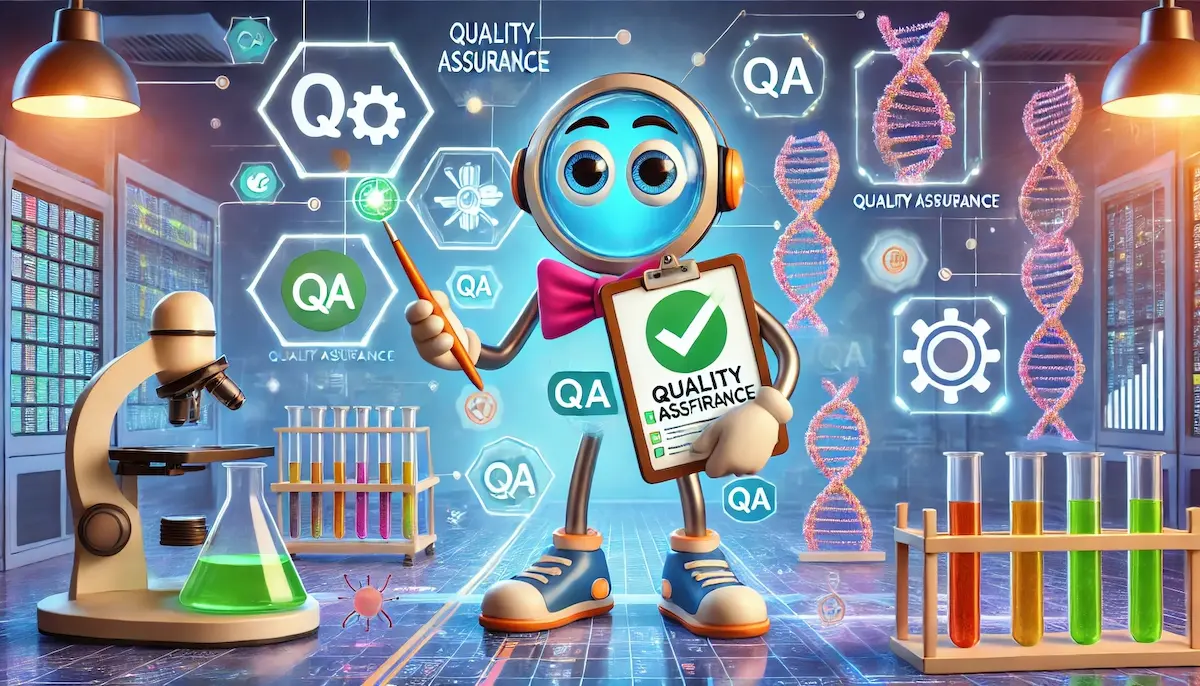In the rapidly evolving field of biotechnology, where innovations can have significant impacts on health, agriculture, and the environment, maintaining high standards is crucial. This is where biotech quality assurance (QA) comes into play. Quality assurance in biotechnology ensures that products and processes meet stringent regulatory and industry standards, safeguarding both consumers and the environment. Let’s delve into what biotech quality assurance entails and why it is so important.
What is Biotech Quality Assurance?
Biotech quality assurance refers to the systematic processes and procedures used to ensure that biotechnology products, such as pharmaceuticals, biologics, and agricultural products, meet defined quality standards. These standards are established by regulatory bodies, such as the U.S. Food and Drug Administration (FDA) and the European Medicines Agency (EMA), as well as industry best practices.
Quality assurance in biotech involves a wide range of activities, from product development and manufacturing to testing and post-market surveillance. The goal is to ensure that products are safe, effective, and consistent, meeting both regulatory requirements and customer expectations.
Key Components of Biotech Quality Assurance
Biotech quality assurance encompasses several critical components:
Standard Operating Procedures (SOPs)
Standard Operating Procedures (SOPs) are detailed, written instructions that describe how specific processes should be carried out. In biotech QA, SOPs ensure consistency and reliability in production and testing. Adhering to SOPs minimizes errors and ensures that every step in the manufacturing process meets quality standards.
Good Manufacturing Practices (GMP)
Good Manufacturing Practices (GMP) are guidelines that outline the requirements for ensuring product quality and safety in the manufacturing process. GMP covers everything from facility design and equipment maintenance to employee training and record-keeping. Compliance with GMP is mandatory for biotech companies and is closely monitored by regulatory agencies.
Quality Control (QC)
Quality Control (QC) is a subset of quality assurance focused on testing and inspection. QC involves sampling, testing, and reviewing products at various stages of production to ensure they meet the required specifications. Any deviations from the standards are addressed immediately to prevent defective products from reaching the market.
Risk Management
Risk management is a critical aspect of biotech quality assurance. It involves identifying, assessing, and mitigating potential risks that could impact product quality or safety. This includes everything from supply chain risks to potential issues in the production process. Effective risk management helps prevent problems before they occur and ensures a swift response if issues arise.
Regulatory Compliance
Compliance with regulatory requirements is central to biotech QA. Biotech companies must adhere to regulations set by authorities such as the FDA, EMA, and other global agencies. This includes following guidelines for product testing, documentation, labeling, and post-market surveillance. Failure to comply can result in penalties, product recalls, or even shutdowns.
Importance of Biotech Quality Assurance
Biotech quality assurance is essential for several reasons:
Patient Safety
In biotechnology, where products often directly impact human health, patient safety is paramount. QA ensures that products are safe and effective, reducing the risk of adverse effects and protecting patient well-being.
Product Consistency
Consistency is key in biotechnology, particularly for products like pharmaceuticals and biologics. QA ensures that every batch of product meets the same high standards, providing reliable outcomes for patients and consumers.
Regulatory Approval
Obtaining and maintaining regulatory approval is critical for biotech companies. Quality assurance helps ensure that products meet the stringent requirements set by regulatory bodies, facilitating smooth approval processes and ongoing compliance.
Protecting Brand Reputation
A single quality failure can damage a biotech company’s reputation, leading to loss of customer trust and market share. QA helps maintain high standards, protecting the company’s reputation and ensuring customer confidence in its products.
Cost Efficiency
By preventing errors and ensuring that processes are efficient, QA helps reduce waste and minimize costly recalls or rework. This leads to better resource management and improved profitability.
Conclusion
Biotech quality assurance is a cornerstone of the biotechnology industry, ensuring that products are safe, effective, and consistent. By adhering to rigorous standards and implementing comprehensive QA processes, biotech companies can protect patients, meet regulatory requirements, and maintain their position in a highly competitive market.
Blockfine thanks you for reading and hopes you found this article helpful.
